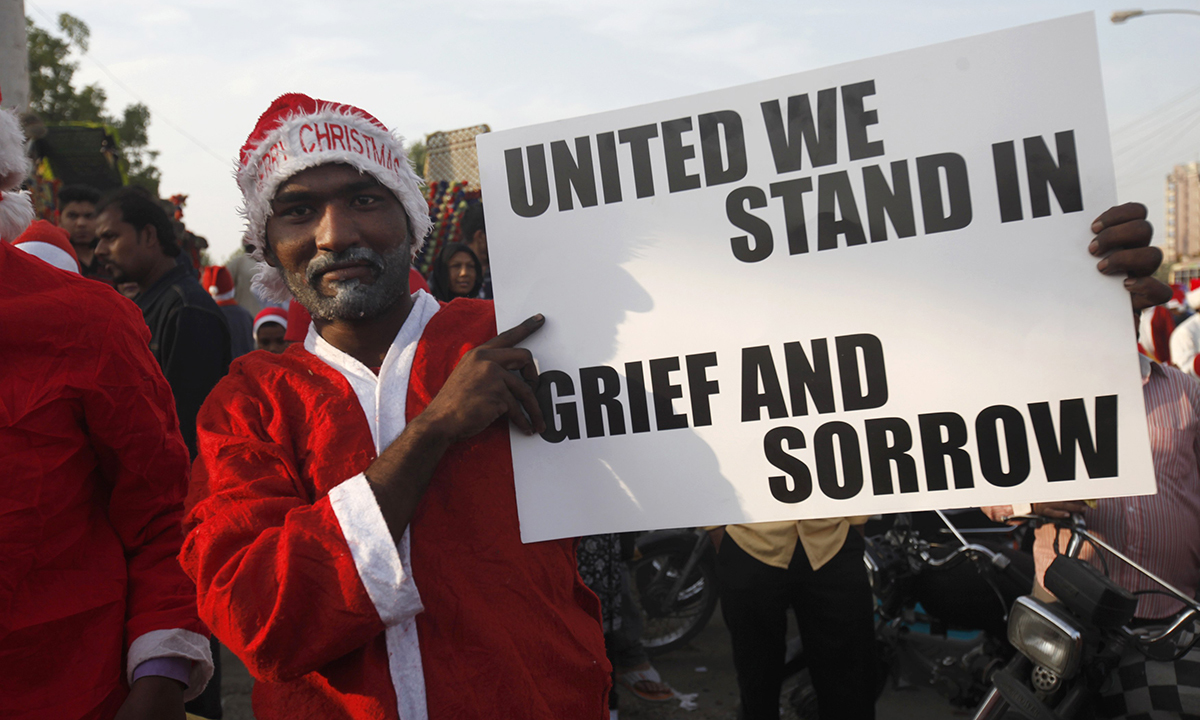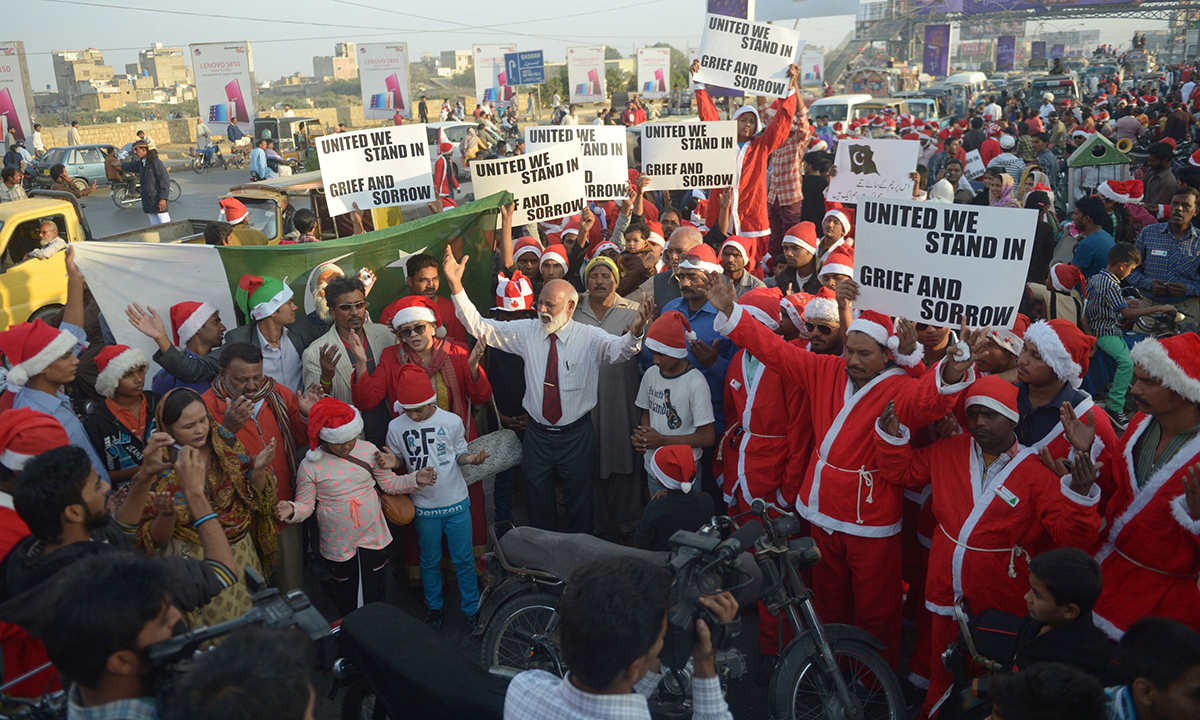A provincial review board, comprising three judges of the Lahore High Court, ended detention of Malik Ishaq, ringleader of a banned takfiri terrorist outfit, after the Punjab government opted to withdraw appeal for extension to his confinement.
The Punjab special secretary home and other officials produced Ishaq before the board amid strict security as a heavy police contingent was deployed on the high court premises. The board, comprising Justice Manzoor Ahmad Malik, Justice Farrukh Irfan Khan and Justice Abdul Sami Khan, held in-camera proceedings.
The government’s counsel requested the board to extend Ishaq’s detention for further three months in the wake of the Peshawar school massacre. He argued that the release of Ishaq would be a risk to law and order as he was known for delivering hate speeches at religious gatherings.
An insider said Malik Ishaq contested the government’s arguments and government did not provide the proofs of provocative speeches and other heinous crimes of the takfiri ringleader. Then, secretary withdrew the appeal and the board dismissed the appeal as withdrawn, ending the detention of Ishaq.
The review board had, on Sept 25, extended the detention of Ishaq for three months. The government had detained him in July this year under maintenance of public order (MPO) declaring him a risk to the law and order. His detention was due to end on Dec 25.
It was a fixed match between the PMLN’s government and takfiri terrorists because Malik Ishaq and his group’s Chief Ahmed Ludhianvi are allies of the PMLN’s high-profile politicians. Malik Ishaq and Ludhianvi publicly incited Deobandis for pogrom against Shia Muslims. Their Lashkar-e-Jhangvi (ASWJ) claimed responsibility for the Shia genocide in Pakistan. They also killed Sunni Muslims, Christians, and security officials of Punjab province and of armed forces.
Despite the fact that ASWJ, LeJ and Sipah-e-Sahaba, 3 names of one outfit co-led by Ahmed Ludhianvi and Malik Ishaq, are the staunch allies and abettors of takfiri Taliban/TTP and al-Qaeda in Pakistan, PMLN’s government at the Centre and in Punjab paved way for release of Malik Ishaq and has not yet ordered arrest of the mastermind of the takfiri terrorism Ludhianvi.
Despite the fact that ASWJ, LeJ and Sipah-e-Sahaba, 3 names of one outfit co-led by Ahmed Ludhianvi and Malik Ishaq, are the staunch allies and abettors of takfiri Taliban/TTP and al-Qaeda in Pakistan, PMLN’s government at the Centre and in Punjab paved way for release of Malik Ishaq and has not yet ordered arrest of the mastermind of the takfiri terrorism Ludhianvi.
In the past, Pakistani came to know of electoral adjustments and local-level alliances between the Prime Minister Nawaz Sharif’s party PMLN and the takfiris in Punjab province. Rana Sanaullah was replaced as minister after massacre of Sunni Bralevi supporters of Sunni leader Tahir ul Qadri. Like Sanaullah, his successor as Minister Rana Mashood too was a close ally of banned Sipah-e-Sahaba.
Now, civil society members have tweeted a photo of federal interior minister Chaudhry Nisar Ali Khan with Ahmed Ludhianvi. That means that PMLN’s federal government and provincial government of largest populated province Punjab both continue their alliance with Ludhianvi, the architect of ongoing takfiri terrorists co-abetted by Malik Ishaq.
Pakistani nation believes that terrorism in Pakistan could not be surmounted as long as PMLN’s pro-takfiri high-profile figures in the federal and provincial governments continue their marriage of convenience with the takfiri ringleaders such as Ludhianvi and Malik Ishaq.
http://www.shiitenews.org/index.php/shiitenews/pakistan/notorious-takfiri-terrorist-ringleader-malik-ishaq-released












